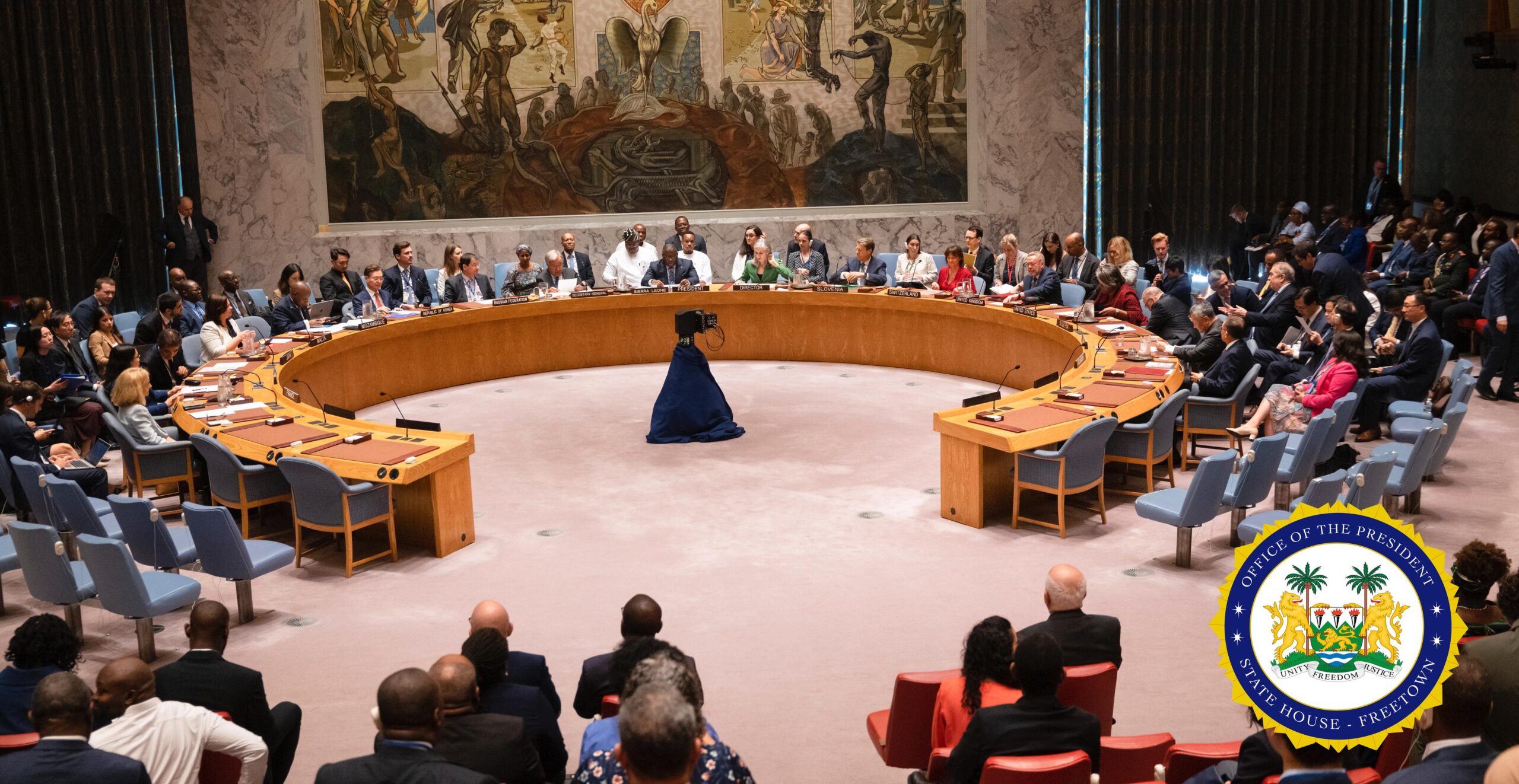By Ibrahim Joenal Sesay
Sierra Leone’s President, Julius Maada Bio has chaired the United Nation Security Council, championing the common African Position for the reform of the Security Council (UNSC).
Bio presented the common position of the African continent on Monday 12 August at the United Nations Headquarters in New York.
The President described his address to council as matter of urgency of the important matter of the maintenance of international peace and security through the reform of the UN Security Council.
Bio maintained that he spoke as a representative of a continent that has long been under-represented in the decision-making processes that shape the world on matters of peace and
Security.
That it is a settled view that the UN Security Council needs reforming and that the imperative for reform is irrefutable.
“Nearly 80 years after its creation, the Council has been stuck in time. Its imbalanced composition is at odds with current realities and unjust, undermining its legitimacy and effectiveness” he insisted
He stressed that the legacy of colonialism, economic exploitation, and political marginalisation has left deep scars on the continent, affecting its development, stability, and influence in international affairs.
The President of Sierra Leone also highlighted the Ezulwini Consensus and the Sirte Declaration upon which Africa has articulated a clear and compelling vision and model for reform, one that ensures equitable representation and meaningful participation of Africa in the Council, noting that Africa demands two permanent seats in the UN Security
Council and two additional non-permanent seats, bringing the total number of non-permanent seats to five.
He emphasised that the African Union will choose the African Permanent Members, adding that Africa wants the veto abolished.
“However, if UN Member
States wish to retain the veto, it must be extended to all new Permanent Members as a matter of justice,” he said.
He averred that the Common African Position is premised on the fact that by
rectifying the historical injustice, the international community will not only promote greater fairness, equity and equality in global governance, but also act on the imperative to ensure the legitimacy and effectiveness of the Council itself and that it will further unlock Africa’s full potential as a dynamic and vibrant Continent capable of meaningfully contributing to the advancement of peace, security, and stability worldwide.
The presentation of President Bio receives the support of United States of America (USA), China, France, Russia, United Kingdom, Japan, South Korea and other calling for the historical injustice against Africa to be rectified urgently.

